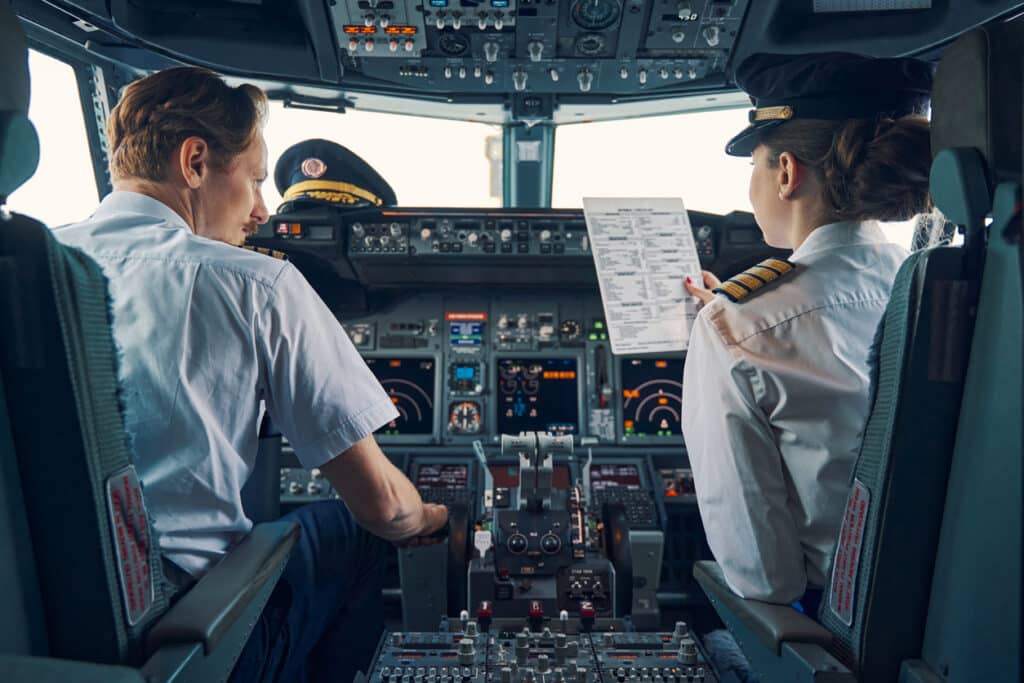US Taxes for Pilots and Seafarers: Getting It Right

The IRS allows qualifying Americans abroad to exclude up to $130,000 of foreign-earned income for 2025, and many pilots and seafarers can take advantage of this significant tax benefit. While your profession creates unique challenges because income earned in international waters or airspace doesn’t qualify as foreign income, you’re not automatically disqualified from expat tax protections.
The key difference for aviation and maritime workers is that income earned for services conducted in international waters or airspace is not considered foreign earned income. However, time spent working in foreign countries and their airspace does qualify. This means you must carefully track and apportion your income based on where you perform services.
Do US Tax Rules Apply Differently to Pilots and Seafarers?
Yes, pilots and seafarers face unique tax considerations because the place where services are performed determines income sourcing, not where your employer is located or where you get paid. According to the IRS, income earned in a foreign country includes work performed in that country’s airspace and territorial waters, but excludes international waters and airspace.
What Counts as Foreign Income:
- Time flying in foreign airspace (over France, Germany, Japan, etc.)
- Time on the ground in foreign airports performing duties
- Time working in foreign territorial waters (within 12 miles of coastline)
What Doesn’t Count as Foreign Income:
- Time flying over international waters
- Time in US airspace or on US soil
- Time in US territorial waters
This means a pilot flying New York to London might only qualify for the Foreign Earned Income Exclusion on the portion of salary earned while flying over foreign countries, not over the Atlantic Ocean.
Can Pilots and Seafarers Use the Foreign Earned Income Exclusion?
Absolutely. The Foreign Earned Income Exclusion (FEIE) allows you to exclude up to $130,000 of foreign earned income from US taxation for 2025. If you’re married and both spouses qualify, you can exclude up to $260,000 combined.
To qualify, you must meet three requirements:
- Have a tax home in a foreign country
- Have foreign-earned income
- Pass either the Physical Presence Test (330+ days abroad) or the Bona Fide Residence Test
The 330-day requirement means 330 full days in foreign countries, not just outside the US. Time in international waters or airspace doesn’t count toward this requirement.
Example Calculation: Captain Martinez earns $150,000 annually flying international routes. After tracking her time, she determined that 60% of her work was in foreign airspace and other countries. She can exclude $90,000 (60% × $150,000) using the FEIE, saving approximately $20,000 in federal taxes.
When Should Pilots and Seafarers Use the Foreign Tax Credit Instead?
The Foreign Tax Credit (FTC) provides a dollar-for-dollar credit for income taxes paid to foreign countries. This often works better for pilots and seafarers who pay significant foreign taxes or work for international carriers based in high-tax countries.
Example: Pilot Johnson pays $15,000 in UK taxes on his foreign-earned income. He can claim a $15,000 credit against his US tax liability, potentially eliminating his US tax obligation entirely while preserving his ability to contribute to US retirement accounts.
You can strategically combine both protections: use the FEIE for earned income up to $130,000 and the FTC for foreign taxes paid on income above the exclusion limit.
How Do You Track Income for Tax Purposes?
The IRS requires detailed record-keeping for aviation and maritime workers because these professions have higher audit rates due to the complexity of income apportionment.
Essential Records to Maintain:
- Daily logbooks showing exact locations and times
- Flight plans and ship manifests, when available
- Passport entry and exit stamps
- Crew schedules and rotation records
- Foreign tax documents and payment receipts
Airlines often provide “Duty Time Apportionment” breakdowns showing average flight time components. The Tax Court has ruled these are acceptable methods for determining foreign earned income when detailed flight plans aren’t available.
What About State Tax Obligations?
Many pilots and seafarers can eliminate state tax obligations by establishing bona fide residence abroad. However, you’ll need to formally cut ties with your former US state by:
- Updating voter registration
- Obtaining a foreign driver’s license
- Closing unnecessary US bank accounts
- Filing a final state tax return for your departure year
What If You’re Behind on Filing?
Don’t panic. If you haven’t been filing US taxes while working internationally, the Streamlined Filing Compliance Procedures offer a penalty-free way to catch up. This IRS program allows you to file the last 3 years of tax returns and 6 years of FBARs without penalties, as long as your failure to file was non-willful.
Many pilots and seafarers qualify because they genuinely didn’t know about their US filing requirements while working abroad.
Which Forms Will You Need?
- Form 2555 (Foreign Earned Income) is required to claim the FEIE. This form requires detailed information about your time abroad and income sources, including income apportionment calculations.
- Form 1116 (Foreign Tax Credit) Use this if you claim credits for foreign taxes paid to your host country or the country where your employer is based.
- FinCEN Form 114 (FBAR) is required if your foreign bank account balances exceed $10,000 at any point during the year.
What Common Mistakes Should You Avoid?
- Not Properly Apportioning Income: Failing to separate time in foreign countries from time in international waters/airspace can result in overclaiming the FEIE.
- Missing the Physical Presence Test: Counting days in international travel toward your 330-day requirement when they don’t qualify as “foreign country” days.
- Overlooking Foreign Tax Credits: Not claiming credits for taxes paid to foreign countries where you worked or were based.
- Poor Record-Keeping: Not maintaining detailed logs that can withstand IRS scrutiny during an audit.
Ready to Get Your Expat Taxes Done Right?
The complexity of aviation and maritime taxation means most pilots and seafarers benefit from professional help. These professions face higher audit rates, making accurate preparation crucial for peace of mind.
No matter how late, messy, or complex your return may be, we can help. You’ll have peace of mind knowing your taxes were done right by professionals specializing in these situations.
If you’re ready to be matched with a Greenback accountant, click the get started button below. For general questions on expat taxes or working with Greenback, contact our Customer Champions.
Whether you’re years behind or just unsure about the thresholds, our team is ready to help.
This article is for informational purposes only and should not be construed as personalized tax advice. Individual circumstances vary, and you should consult a qualified tax professional for specific advice.


